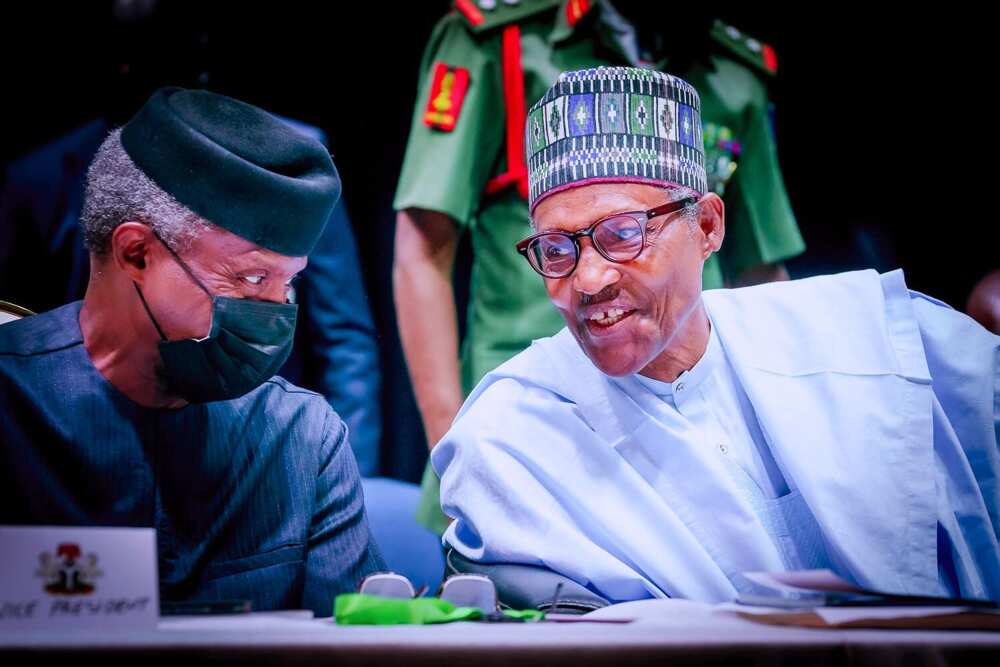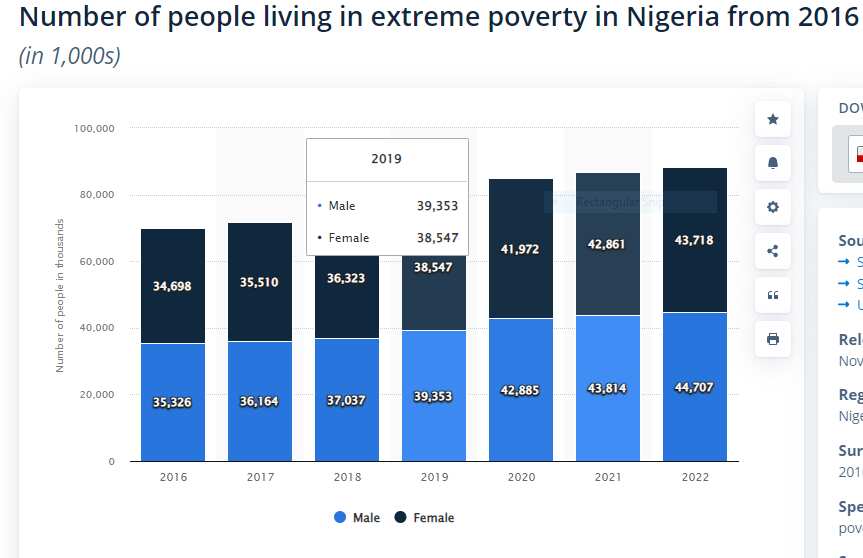Nigeria’s Poverty Rate Has Increased in The Last 6 Years, Showing Men Getting Poorer Than Women, Report Says
- The number of poor men in comparison to women in Nigeria has increased in the last six years since Buhari became president
- In 2016, a year after Buhari became Nigeria's president, there were about 34 million poor females in Nigeria and 35 million males who are poor
- By 2022, the poverty rate between men and women grew with 43.71 per cent of women being poor and 44.707 per cent of men living in poverty
On Tuesday, June 21, 2022, President Muhammadu told Bloomberg that his government would leave Nigeria’s economy better than he met it, saying he has outperformed the successive administration of Goodluck Jonathan.
However, there are pointers to the contrary as Nigeria’s economy has taken a hit in the last seven years since Buhari mounted the saddle.

Source: Facebook
Available statistics show that in the last six years, Nigeria’s poverty rate has increased, showing that in 2020 about 89 million Nigerians are poor, meaning those who live below $1.9 per day. It is projected that about 90.1 million Nigerians will become poorer by the end of 2022.
The breakdown
In 2016, a year after Buhari became president, the economy began to nosedive.
PAY ATTENTION: Join Legit.ng Telegram channel! Never miss important updates!
In 2015, when Buhari became President, the poverty rate in Nigeria stood at 9.5 per cent and is currently standing at 12.9 per cent.

Source: UGC
A further breakdown shows that there are more poor men in Nigeria than women.
Before Buhari become president in 2015, about 35 per cent of males in Nigeria, representing about 35 million were poor while about 34 million females were poor. The number, however, increased in 2022.

Read also
Fact-Check: Six key economic indicators fault Buhari's claim, Nigerian economy is better under him since 2015
As of the time of writing, about 43.71 per cent of females are poor and 44.707 per cent of males are poor despite the huge employment gap between the two genders.
Youth unemployment in Nigeria
A report by Statista, the Germany-based data company says that in 2019, the estimated youth unemployment rate in Nigeria was almost 17.69 per cent.
According to the source, the data are estimates from the International Labour Organization, an agency of the United Nations developing policies to set labour standards.
The youth unemployment rate refers to the percentage of the unemployed in the age group of 15 to 24 years as compared to the total labour force.
Youth unemployment rates are often higher than overall unemployment rates, which is true in Nigeria as well: the general rate of unemployment was approximately six per cent in 2018.
One reason for this contrast is that many of the youth under the age of 24 are studying full-time and are unavailable for work due to this, the report said.
The way forward
The World Bank, in its March 2022, report on Nigeria’s poverty assessment said ‘deep structural reforms are needed to lift millions of Nigerians out of poverty.’
The report stated that sluggish growth, low human capital, labour market weaknesses, and exposure to shocks are holding Nigeria’s poverty reduction back.
The report draws primarily on the 2018/19 Nigerian Living Standards Survey (NLSS), which provided Nigeria’s first official poverty numbers in almost a decade, as well as the Nigeria COVID-19 National Longitudinal Phone Survey (NLPS) implemented by Nigeria’s National Bureau of Statistics (NBS) in collaboration with the World Bank.
The poverty rate in Egypt vs Nigeria: What Peter Obi saw
Recall Legit.ng reported that the presidential candidate of the Labour Party, Peter Obi on June 14, 2022, said he was going to Egypt to study the country’s education, health, electricity, planning and financial services.
Reports say that Obi toured Egypt's power plants, and financial hubs and met with top educationists in the country.
In continuation of our in-country focus: Comparable economies in Africa, Legit.ng takes a look at Egypt’s move towards poverty reduction versus Nigeria’s.
Source: Legit.ng



